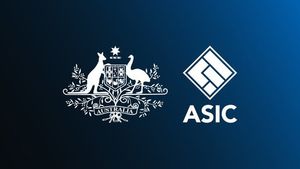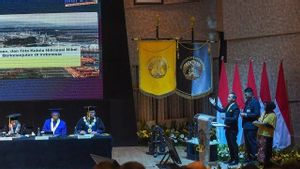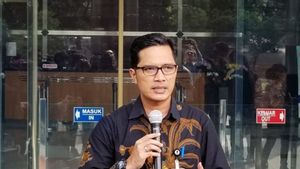JAKARTA – Facebook's owner, Meta Platforms Inc., said Thursday, January 13, that it would "assess the feasibility" of assigning an independent human rights assessment to its work in Ethiopia.
This comes after its supervisory board recommended a review of how Facebook and Instagram have been used to spread content that heightens the risk of violence in the country.
The board, set up by the company to address criticism of its handling of problematic material, makes binding decisions on a small number of challenging content moderation cases and provides non-binding policy recommendations.
Meta has come under scrutiny from lawmakers and regulators over user safety and handling abuse on its platforms worldwide. Especially after whistleblower Frances Haugen leaked internal documents showing the company's struggles with controlling content in countries where the speech is likely to cause and harm, including in Ethiopia.
Thousands of people have died and millions have been displaced during the year-long conflict between the Ethiopian government and rebel forces from the northern Tigray region.
The social media giant said it had "invested significant resources in Ethiopia to identify and remove potentially harmful content," as part of its response to a December board recommendation in a case involving content posted in the country.
The supervisory board last month upheld Meta's initial decision to remove a post alleging the involvement of ethnic Tigrayan civilians in atrocities in Ethiopia's Amhara region. Since Meta has recovered the post after the user's appeal to the board, the company had to remove the content again.
On Thursday, Meta said that despite deleting the post, it disagreed with the board's reasoning that it should have been removed because the post was an "unverified rumour" that significantly increased the risk of imminent violence. It said it would impose "journalistic publishing standards on people."
A spokesperson for the supervisory board said in a statement: "The existing Meta Policy, prohibits rumors that contribute to imminent violence that cannot be debunked within a meaningful period of time, and the Board is making recommendations to ensure this policy is effectively implemented in conflict situation."
"Rumors accusing an ethnic group of being involved in atrocities, such as those found in this case, have the potential to cause great harm to people," the supervisory board said as quoted by Reuters.
The Council has recommended that Meta commission a human rights due diligence assessment, to be completed within six months, which should include a review of Meta's language skills in Ethiopia and a review of actions taken to prevent abuse of its services in the country.
However, Meta says not all elements of these recommendations "may be feasible in terms of time, data science or approach." Meta will continue its existing human rights due diligence and should have an update on whether they can act on the board's recommendations in the next few months.
Previous Reuters reports on events in Myanmar and other countries have investigated how Facebook struggles to monitor content around the world in multiple languages. In 2018, UN human rights investigators said the use of Facebook had played a key role in spreading hate speech that fueled violence in Myanmar.
Meta, which has previously said it was too slow to prevent misinformation and hate in Myanmar, said the company now has a watchdog of native speakers around the world who review content in more than 70 languages which serves to stop abuse on its platform in places where there is an increased risk of conflict and violence.
The board also recommended that Meta rewrite its value statement on safety to reflect that online speech can pose a risk to people's physical safety and their right to life. The company said it would make changes to these values, as part of the implementation of the recommendations.
The English, Chinese, Japanese, Arabic, and French versions are automatically generated by the AI. So there may still be inaccuracies in translating, please always see Indonesian as our main language. (system supported by DigitalSiber.id)













